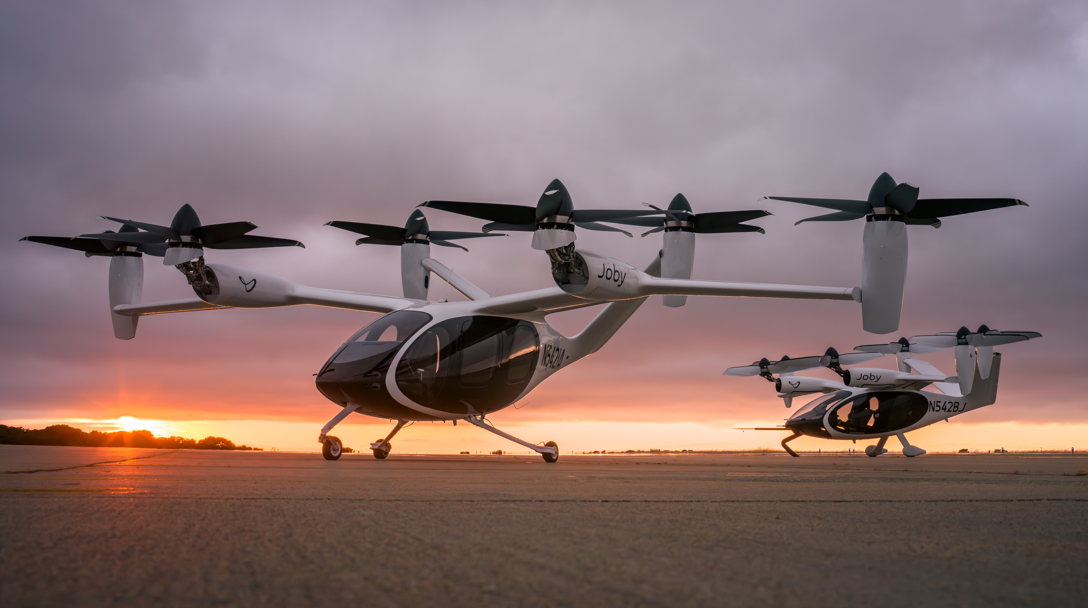
S4
Five of the six publicly traded electric-vertical-takeoff-and-landing (eVTOL) startups have reported their financial results for the 2023 second quarter (Q2), offering insight into their cash runways and presenting an increasingly unequal picture of their financial health.
Joby Aviation remains by far the best-capitalized advanced air mobility (AAM) startup with $1.2 billion in cash and cash equivalents on its balance sheet as of the end of Q2. The company has raised roughly $2.25 billion in total aggregate funding to date, translating to total cash consumption of 46.9%, according to data from SMG Consulting.
With $164 million spent during the first half of the year, Joby says it is on track to hit its full-year spending target of $360-380 million. The startup’s existing cash runway, as well as progress toward type certification, make it “very likely” to enter service as planned in 2025, SMG says.
Following its latest $215 million equity raise announced earlier this month, Archer Aviation now boasts total liquidity of $675 million, including $55 million remaining under a previously announced facility from Stellantis. With roughly $1.1 billion in aggregate total funding, Archer has consumed 46.2% of its total cash raised to date. The company spent $156 million in the first half of 2023 and says its core spending level–roughly $62 million in Q1 and $66 million in Q2–will “persist into the future.”
While its existing balance sheet should provide a sufficient runway to certification and entry into service in 2025, Archer also reports opportunities to raise more funds between now and then, including by collecting additional predelivery payments from launch customer United Airlines, and additional contract opportunities with various branches of the U.S. military.
Embraer spinoff Eve Air Mobility finished the June quarter with total cash and cash equivalents of around $370 million, including a standby credit line from the Brazilian development bank worth around $100 million. According to Chief Financial Officer Eduardo Couto, that should be enough to fund its operations into 2025, by which time the company hopes it can begin to tap into predelivery payments (PDP) from its industry-leading air taxi backlog of 2,850 air taxis.
Eve executives have said they can begin to access PDPs from customers–worth around 25% of the purchase price–roughly 18 months ahead of delivery of their vehicles. But it is still unclear if that timeline will allow Eve to begin generating revenues from PDPs prior to planned type certification with Brazilian Regulator ANAC in 2026, raising the possibility of another capital raise in the meantime.
Eve has raised $479 million in aggregate total funding, translating to relatively low cash consumption of just 22.6%.
With more than $1.1 billion raised since its inception, Germany’s Lilium has burned through cash at a far faster rate than its peers, wrapping up Q2 with €354 million ($386 million) of liquidity, translating to total cash consumption of 82.7%.
Lilium’s adjusted cash spending totaled €113 million ($123 million) for the first half of 2023, and is expected to rise to about €170 million ($185 million) in the year’s second half. The company plans to begin accessing PDPs for its Lilium Jet Pioneer Edition once it achieves the first manned flight of its Lilium Jet in late 2024. But Raymond James analyst Savanthi Syth has forecast it will need to raise another $50 million in order to reach that milestone.
Vertical Aerospace finished the latest quarter with £90 million ($114.3 million) in cash and cash equivalents. With roughly $348 million raised to date, the company’s total cash consumption comes to 67.5%.
Vertical estimates that its funding needs over the next 12 months will be £80 million ($101.4 million), meaning it will need to raise additional capital to finance its path to type certification in 2026. Asked about the company’s cash runway, Vertical CEO Stephen Fitzpatrick told the AAM Report in June that there would probably be another capital raise in the coming year.
Commenting on Vertical’s funding needs, SMG Consulting CEO Sergio Cecutta observed that Vertical appears to be slowing down its spending levels in an effort to preserve cash. “They’re slowing down their spending, which is one of the reasons why the program is stretching out,” he says. “They don’t really have a choice—math isn’t optional. They will have to come up with more money.”
